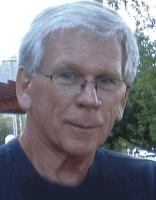Search/ 198 results foundShowing:1-10of198
Scientists are transforming pig livers to look and act like human ones, part of a quest to ease the nation's organ shortage. First workers in a suburban Minneapolis lab dissolve pig cells that made the organ function, leaving ghostly semitranslucent scaffolds floating in large jars. To complete the metamorphosis, they infuse those shells with human cells from donated livers that went untransplanted. It's all highly experimental. But manufacturer Miromatrix is making plans for first-step human testing — an experiment outside a patient's body, to see how well a bioengineered liver can filter blood.
Could the COVID-19 surge in China unleash a new coronavirus mutant on the world? Scientists don’t know but worry that might happen. It could be similar to omicron variants circulating there now. It could be a combination of strains. Or something entirely different, they say. Every new infection offers a chance for the coronavirus to mutate, and the virus is spreading rapidly in China. The country of 1.4 billion largely abandoned its zero COVID policy. Domestic vaccines have proven less effective against serious infection than Western-made messenger RNA versions. There's fertile ground for the virus to change.
An arctic blast has brought extreme cold, heavy snow and high winds to much of the U.S. Cold air moving down from Canada has caused temperatures to plunge dramatically. The subsequent “bomb cyclone” has pummeled much of the country with blizzard conditions. The weather system is sweeping across two-thirds of the country and has thrown a wrench in holiday flights and road trips. The weather system started when cold air pooled up in the Arctic, then was pushed down into the U.S. by the jet stream. Things should start to warm up again after Christmas.
Polar bears in Canada’s Western Hudson Bay — on the southern edge of the Arctic — are continuing to die in high numbers, a new government survey of the land carnivore has found. Females and bear cubs are having an especially hard time, the study found. Researchers surveyed the region home to the ‘Polar Bear Capital of the World’ by air in 2021 and estimated there were 618 bears, down from the 842 in 2016, when the population was last counted. Frozen salt water, the sea ice that polar bears rely on to go out and hunt seals, continues to disappear.
不断努力将学生的热情or esports toward preparing them for jobs in science, technology, engineering and math could address the lack of racial diversity in STEM careers. Kevin Fair is a Black entrepreneur who owns I Play Games!, a Chicago business that hones skills gamers develop naturally to help prime them for jobs in IT, coding, statistics, software engineering and more. Video games are not a cure-all for the STEM diversity gap. But, increasing diversity in STEM could improve pay equity, invigorate innovation and help keep America competitive on a global scale.
New research has found clues into a mysterious fossil site in Nevada, which may have been an ancient maternity ward for giant marine reptiles. The site is home to bones from dozens of ichthyosaurs — fishlike predators that could grow up to the size of a school bus. Scientists previously thought these creatures all died together in some dramatic event. But a study published Monday argues that the fossils added up over many years, as the creatures came back to the same place over generations to give birth. The bones are believed to be from the mothers and offspring that died there over the years.
NEW YORK, N.Y., Dec. 19, 2022 (SEND2PRESS NEWSWIRE) — HitPaw, a leader in the industry, incorporates AI-enabled capabilities into its main pro…
Scientists say the atmospheric carbon overload responsible for global warming might also be making large lakes more acidic. It's happening in oceans, which are taking in some of the carbon dioxide that human activity pumps skyward. That imperils coral reefs and other marine life. U.S. scientists have placed sensors on a buoy in Lake Huron to follow water chemistry trends. They hope eventually to do likewise in the other Great Lakes. Studies predict the Great Lakes and other large freshwater bodies around the world will become more acidic, which could disrupt food chains and habitat. But they need data over multiple years to be sure.
Forecasters are warning of treacherous holiday travel and life-threatening cold for big parts of the nation, an arctic air mass blows into the already-frigid southern United States. In a special weather statement Sunday, the National Weather Service predicted “extreme and prolonged freezing conditions for southern Mississippi and southeast Louisiana.” The rare arctic air mass comes as an earlier storm system gradually winds down in the northeastern U.S., after burying parts of the region under two feet of snow. Utility companies brought in extra workers from other states but were hampered by slick roads and dangerous conditions.
Negotiators at a United Nations conference have yet to resolve how to protect biodiversity and provide funding to poor countries as talks reach their their final stages. Delegates from about 190 countries United Nations Biodiversity Conference, or COP15, have been working for nearly two weeks to finalize a framework for protecting 30% of global land and marine areas by 2030. Currently, 17% of terrestrial and 10% of marine areas are protected. They also working to meet demands from developing countries to close a funding gap for biodiversity of about $700 billion.






























Commented
Sorry, there are no recent results for popular commented articles.